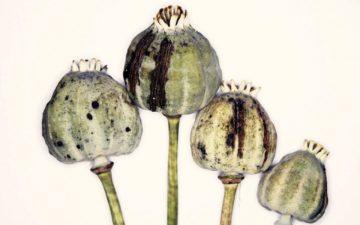Sophie McBain in New Statesman:
 It is no coincidence that caffeine and the minute-hand on clocks arrived at around the same historical moment, the acclaimed food and nature writer Michael Pollan argues in his latest book, This is Your Mind on Plants. Both spread across Europe as labourers began leaving the fields, where work is organised around the sun, for the factories, where shift-workers could no longer adhere to their natural patterns of sleep and wakefulness. Would capitalism even have been possible without caffeine?
It is no coincidence that caffeine and the minute-hand on clocks arrived at around the same historical moment, the acclaimed food and nature writer Michael Pollan argues in his latest book, This is Your Mind on Plants. Both spread across Europe as labourers began leaving the fields, where work is organised around the sun, for the factories, where shift-workers could no longer adhere to their natural patterns of sleep and wakefulness. Would capitalism even have been possible without caffeine?
The introduction of caffeine to Europe in the early 17th century coincided with the waning of the mystical medieval mindset and the rise of the cool-headed rationalism of the Enlightenment. Before the arrival of tea and coffee, alcohol was the safest thing to drink – or at least, safer than most water – so perhaps it is little wonder that the permanently sozzled intellectuals of the Middle Ages were prone to magical thinking. In contrast, caffeine can intensify “spotlight consciousness”, which illuminates a single point of attention, enhancing our reasoning skills. Voltaire had such faith in coffee’s power to sharpen his mind that he is said to have drunk up to 72 cups a day. Balzac sometimes dispensed with drinking coffee altogether and instead ate the grounds for a more powerful hit.
In the Nineties, scientists at Nasa fed a variety of psychoactive substances to spiders to observe the effect on their web-making. The spider given caffeine spun a completely useless web, with no symmetry or centre, and holes large enough for a bird to get through. The web was much more dysfunctional than those spun by spiders high on cannabis or LSD. It’s unclear from the book (and from my subsequent Google searches) whether the spider was given the arachnid equivalent of a single cappuccino or a more Balzacian dose, which makes the comparison with other drugs less helpful, but Pollan’s point is that caffeine changes us more than we realise. Anyone who has accidentally overdosed on coffee and found themselves too jittery to function will identify with the caffeinated spider, who was extremely busy being unproductive. Perhaps the spider could even serve as a symbol for low-paid workers under present-day, hyper-caffeinated capitalism, for whom hard work yields so few personal rewards.
More here.
